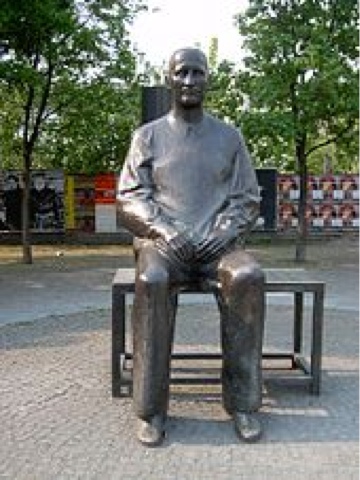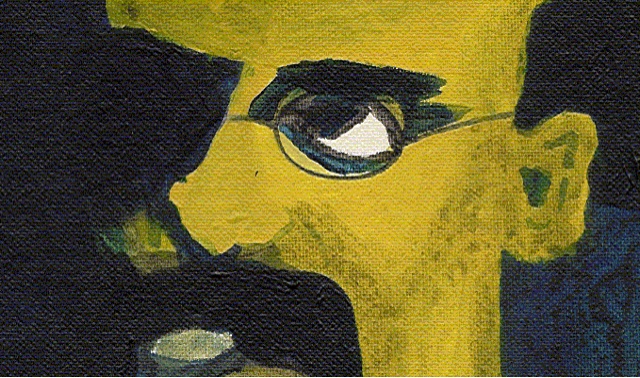This might well have been the least publicized performance in Winnipeg this year. I learned about Ins Choi's performance of his one-man show in a footnote to an invitation to a lecture I received via the University, and jumped at the chance to see this. While Choi's more commercial piece, Kim's Convenience, plays at MTC Mainstage I'm always far more interested in the work the artist creates to feed their soul.
Inspired by an encounter Choi had with a homeless man in a park in Toronto, he creates a character who is a beggar, and a rich man; insane, but a prophet. Touching on themes of faith, consumerism, and pop culture, Choi weaves a non-traditional piece of theatre through the use of song and poem causing the audience to truly introspect as the words circle around them. Accompanying himself on ukelele, and with the odd foot stomp, we see the character weave in and out of lucidity, at once making much sense and none at all. Echoes came to mind of Nietzche's ubermensch, descended from the mountaintop to share the truth, and yet no one listens or believes - so he must hide, in this case behind the mask of poverty and insanity.
A stunning piece of theatre, and one I strongly recommend seeking out. Choi mentioned in the talkback that he is doing a handful of performances in each city Kim's Convenience tours to, so look it up!
Inspired by an encounter Choi had with a homeless man in a park in Toronto, he creates a character who is a beggar, and a rich man; insane, but a prophet. Touching on themes of faith, consumerism, and pop culture, Choi weaves a non-traditional piece of theatre through the use of song and poem causing the audience to truly introspect as the words circle around them. Accompanying himself on ukelele, and with the odd foot stomp, we see the character weave in and out of lucidity, at once making much sense and none at all. Echoes came to mind of Nietzche's ubermensch, descended from the mountaintop to share the truth, and yet no one listens or believes - so he must hide, in this case behind the mask of poverty and insanity.
A stunning piece of theatre, and one I strongly recommend seeking out. Choi mentioned in the talkback that he is doing a handful of performances in each city Kim's Convenience tours to, so look it up!



